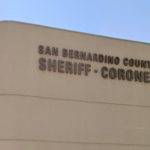Former President Donald J. Trump has been adamant in his refusal to accept the results of the 2020 election. He has glorified the supporters who stormed the Capitol on January 6, 2021, positioned himself to contest the outcome of the 2024 election if he loses, and even stated that he would act as a dictator on his first day back in office if he were to win again.
However, independent presidential candidate Robert F. Kennedy Jr. has a different perspective. He believes that President Biden poses a more significant threat to American democracy. This viewpoint, shared by Mr. Trump, has been labeled as “absurd” and “preposterous” by democracy experts.
Mr. Kennedy’s focus on this issue stems from his belief that the Biden administration’s actions to combat misinformation are a critical concern in today’s political landscape. He views censorship, as he describes it, as a dominant issue that outweighs other aspects of the political system.
The scrutiny of Mr. Kennedy’s stance intensified following his recent statements on CNN and Fox News, where he asserted that President Biden poses a greater danger to democracy than Mr. Trump. His comments have raised concerns among Democratic officials, who fear that Mr. Kennedy’s campaign could impact the upcoming election.
While Mr. Kennedy draws parallels between Mr. Biden and Mr. Trump in his campaign rhetoric, scholars specializing in democratic governments argue that the notion of social media moderation posing a greater threat than Mr. Trump’s actions is unfounded. They point to Mr. Trump’s rejection of election results, incitement of violence, and efforts to undermine democratic norms as more significant concerns.
Sheri Berman, a political science professor, emphasizes the gravity of Mr. Trump’s denial of the election results and highlights the potential impact on democracy. She refutes Mr. Kennedy’s allegations against Mr. Biden, stating that they are exaggerated and misplaced.
In his interviews, Mr. Kennedy makes unsubstantiated claims about Mr. Biden using federal agencies to censor political speech. He fails to provide evidence to support his assertions, referring to a lawsuit he filed instead. The legal battle over social media regulation remains ongoing, with differing perspectives on the government’s role in overseeing online content.
Despite Mr. Kennedy’s allegations, experts in democracy stress the importance of upholding democratic values. They highlight the necessity for political leaders to accept election outcomes and reject political violence unequivocally. The focus should be on preserving democratic principles rather than engaging in misinformation that undermines the foundation of democracy.
As the election approaches, Mr. Kennedy’s campaign continues to face challenges from the Democratic Party. Efforts to limit his ballot access and prevent a debate with Mr. Biden reflect the party’s concerns about his candidacy. The political landscape remains contentious, with diverging views on the future of democracy in America.
In the midst of these debates, it is crucial to uphold democratic norms and combat misinformation that threatens the integrity of the political process. The commitment to democratic values transcends partisan divides and requires a collective effort to safeguard the principles of democracy.
As the election season unfolds, the discourse surrounding democracy and the role of political leaders will continue to shape the future of American politics. It is imperative to prioritize the preservation of democratic norms and uphold the values that form the cornerstone of a functioning democracy.





